Dyke repairs engineer hopes for people fleeing floods and facing hunger in South Sudan
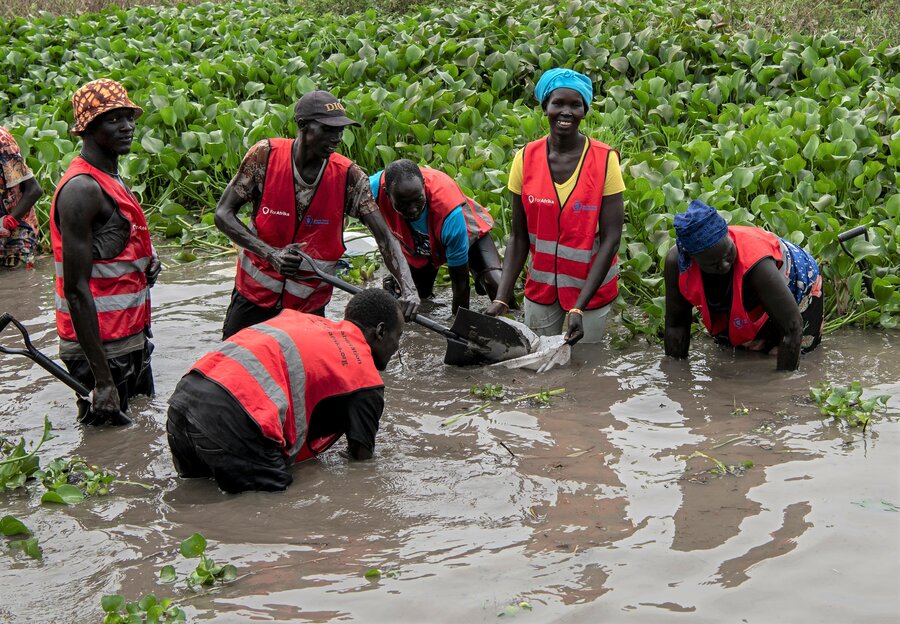
Every day for three years, Yar Mayom Arok, a mother of seven, dreamed of returning to her home in Jalle, a small South Sudanese town on the edge of the Sudd – Africa’s largest wetland.
She and her family fled their home in 2020, when floodwaters from the nearby Nile River broke through a dyke and flooded their town in the central part of the country.
Today, Yar’s wish has come true, thanks to an ambitious World Food Programme (WFP) project to repair a crucial dyke holding back the floodwaters.
‘I feel like the proudest mother in the world’: WFP supports breastfeeding in Uganda
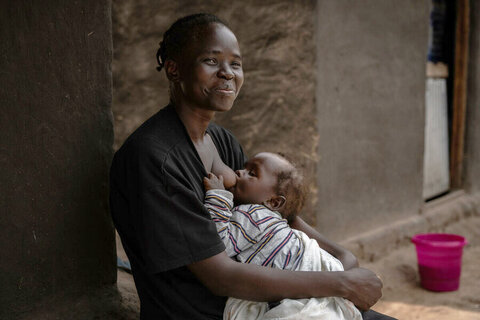
“When I heard about the dyke repairs, I saw a chance for us to return home,” says Yar, who returned to her now-dry home in January.
Yar’s family is among the millions that WFP supports with food and cash assistance. They also benefit from resilience and infrastructure projects in South Sudan – a country at the forefront of the climate crisis and bearing the brunt of more frequent and intense weather-related shocks.
Unprecedented floods have swallowed large swathes of South Sudan, while other parts are grappling with devastating drought.
The climate crisis is also compounding existing challenges in the country, such as conflict, poverty, and rising food and energy prices. This has left almost 8 million people facing crisis levels of hunger or worse – the highest number ever recorded.
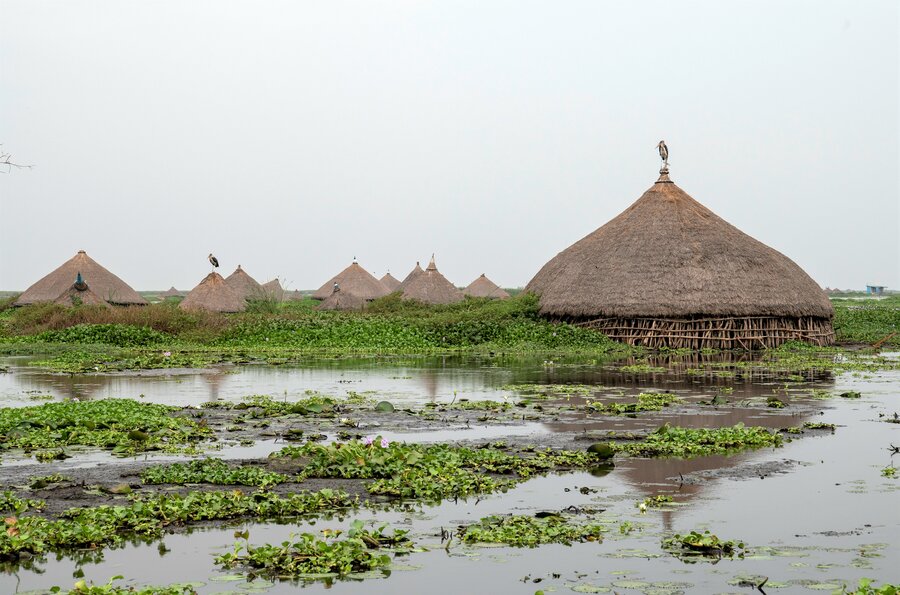
Now, a massive US$405 million funding gap is forcing WFP to prioritize assistance for those closest to starvation. This means ration cuts of 50 percent across the country, and millions of families spiralling deeper into hunger.
Where funding exists, however, WFP is able to complement its emergency response with infrastructure development and help to change the lives of people like Yar.
Indeed, the dyke rehabilitation is just one of many initiatives that WFP is rolling out to tackle the climate crisis, improve food security and develop rural economies in South Sudan.
“Across the country, our infrastructure and resilience projects are critical for keeping communities safe and connected as the climate crisis tightens its grip,” says Mary-Ellen McGroarty, WFP Country Director in South Sudan.
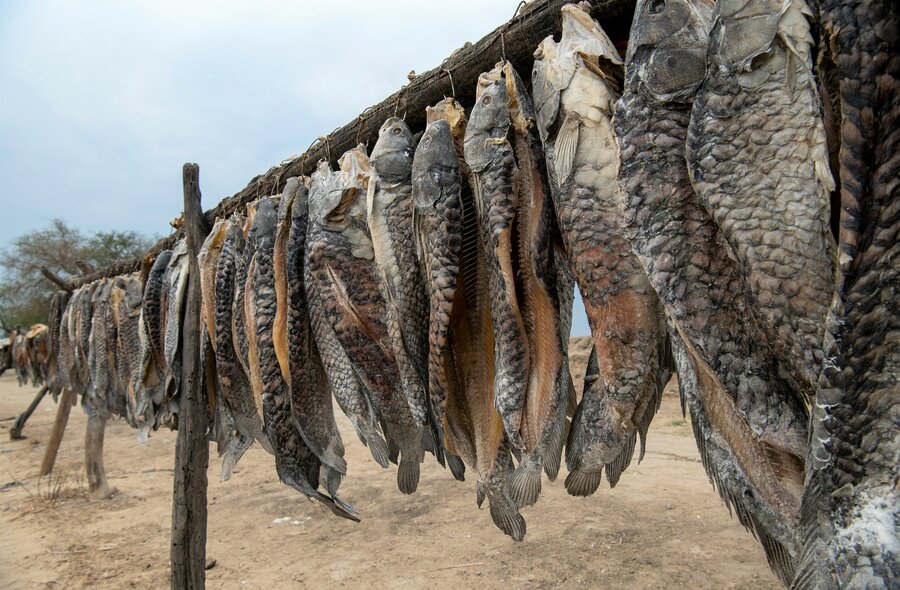
“Whether it’s dykes to keep communities from flooding, roads to keep families and markets connected, or man-made ponds and wells to provide access to water during times of drought or prolonged dry spells, these initiatives are becoming increasingly critical as unpredictable weather patterns continue to have the heaviest impact on the families who have contributed the least to the climate crisis.”
Before the flooding, Yar and her husband owned many cows and goats. She also ran a shop selling sugar, vegetable oil, biscuits and ‘royco’ (a blend of spices for enhancing the flavour of food). They grew sorghum in the wet season and hunted antelope in the dry season, while fishing was good all year round.
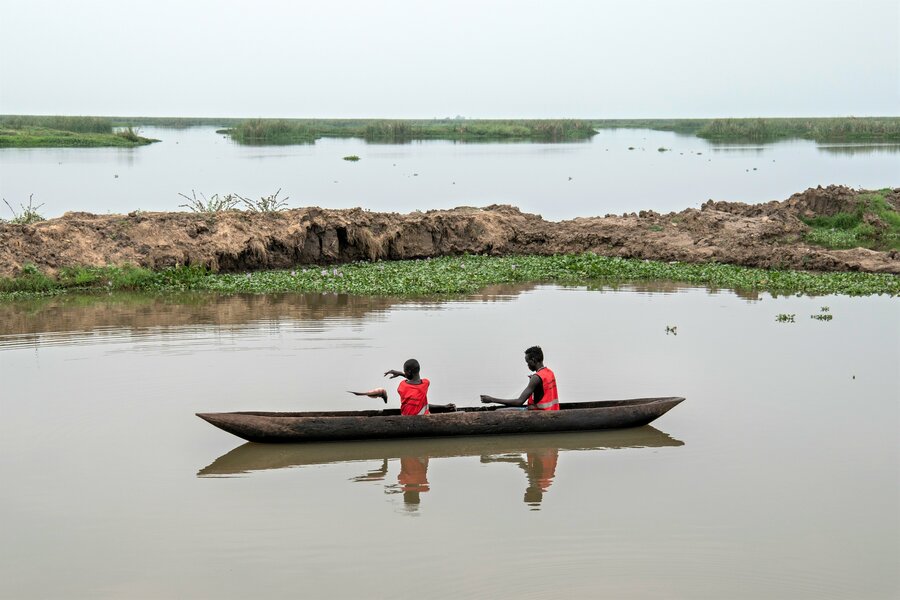
Then came the devastation unleashed by the overflowing Nile River.
“When the waters came, there was no time to save any of our belongings. We put the children in a boat and escaped to dry land,” recalls Yar.
The family sought refuge in a camp for displaced families in Mangalla, some 200 km south of their home. However, funding shortages constrained WFP’s ability to respond and ration cuts had a severe impact on families who had fled the flooded areas.
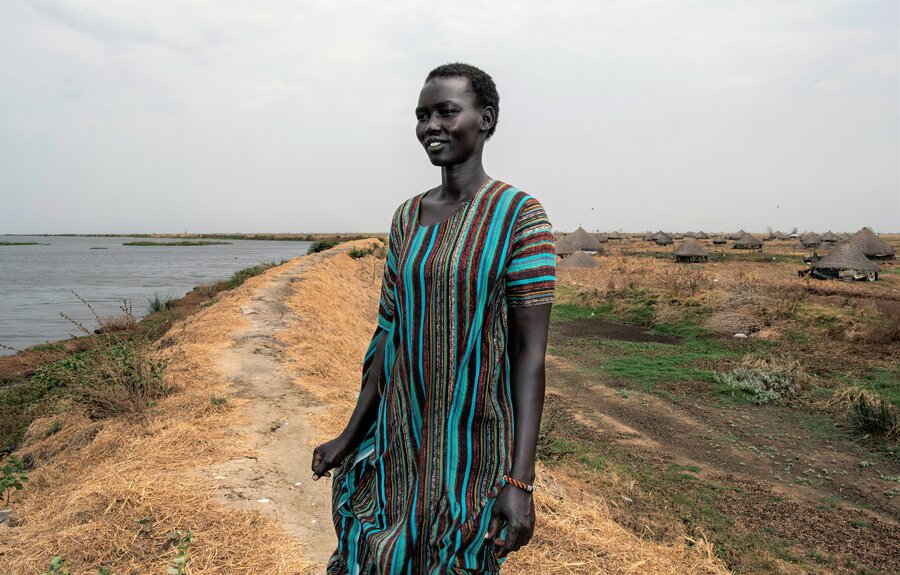
“Life was tough in the camp,” Yar says. “The food we were given was never enough. There was no way to earn any money and my children had little access to education.”
Three years on, the town is now dry, following WFP repairs to a 93 km section of the dyke, which holds the Nile’s overflow. As news spreads about the dyke repairs, former Jalle residents are starting to return.
Since coming home, Yar has started a new business – this time selling tea. She hopes to earn enough money to reopen her shop and to buy new livestock.
In Chad, as in Sudan, tragic stories and soaring needs
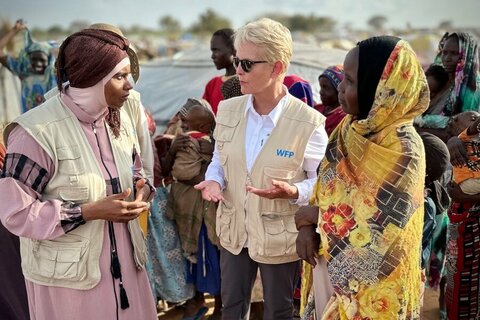
“I am so much happier in Jalle, there is plenty of fish to eat and if you look at my body, my skin is smooth and I am gaining weight again,” she says.
Yar’s family are not the only ones benefiting from the dyke repairs. Some 25 km to the north, Elizabeth Acham Maketh is waist-deep in water as she hastily fills sacks with mud to repair a breach in the dyke.
She is among 2,000 casual labourers employed by WFP for the rehabilitation project.
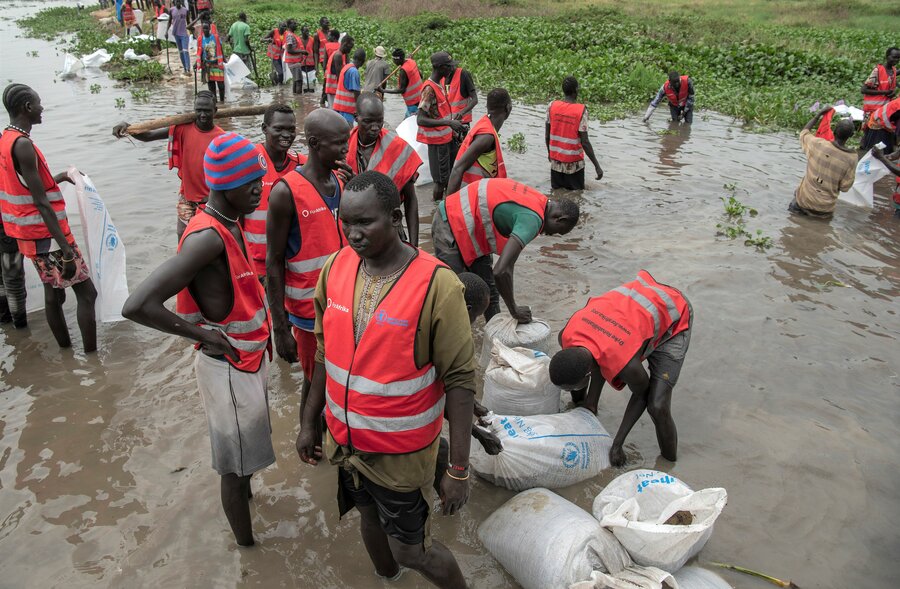
“Our community suffered a lot in the flooding, and we all have a responsibility to make life better for ourselves,” says Elizabeth, a widow and mother of four. “I will use the money I have earned to pay for food and school fees for my children, and to buy more livestock to replace the ones I lost in the flooding.
Garang Chol Atem, a father of six and another dyke worker, knows the tragedy of the climate crisis all too well. He lost nearly 60 cows and goats in the flooding. In a country where livestock are many people’s entire livelihood, this is akin to losing his life savings.
“When our work here is finished, I want to build a new house and return to my old life of farming, fishing and cattle keeping,” he says.
Back in Jalle, Yar is hopeful the dyke repairs will keep the land dry – and encourage others to return home and rebuild their lives.
A version of this article was first published on 19 April 2023.
Worldwide, some 200 WFP engineers and technicians work on infrastructure projects in more than 45 countries, guided by a Rome-based team.
